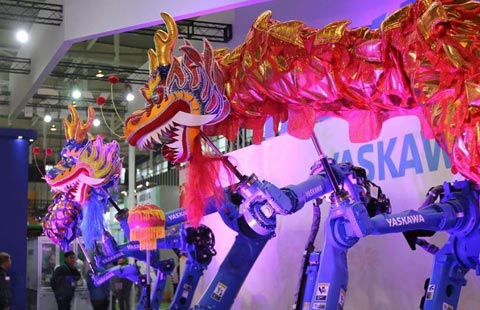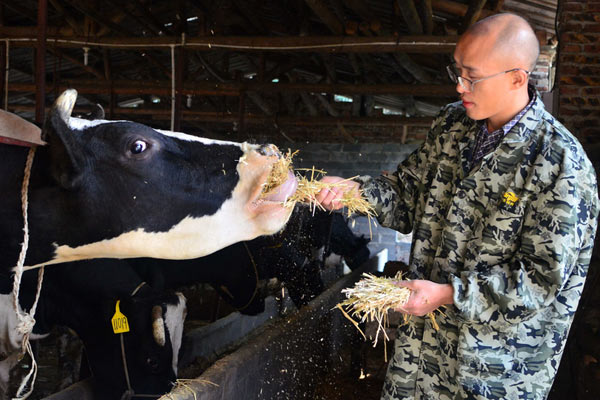China pins hopes on taxation for environmental protection
BEIJING - Environment tax will become one of the Chinese government's weapons in fighting chronic and intractable pollution in the coming years.
The State Council rendered a draft environment tax law to China's top legislature for the first reading in August, and it vowed earlier this week to introduce the tax by 2020 in a five-year plan for ecological and environmental protection.
"[The government will] use fiscal and tax policies as a guidance [from 2016 to 2020]," said the State Council document.
China established the "pollutant discharge fee" system in 1979. In 2015, it collected 17.3 billion yuan ($2.5 billion) from some 280,000 businesses.
However, some local governments exploit the system's loopholes and secretly exempt such fees for enterprises which are usually big contributors to fiscal revenues.
Now China's top legislature is working to upgrade the current pollutant discharge fee system to a coercive and legally binding law, which will tax air and water pollutants, solid waste and industrial noise at different rates.
"The upcoming law is expected to raise polluters' operational costs and thus force them to upgrade technology and shift to cleaner production," said Tan Yunming, professor at the Central University of Finance and Economics.
Environment tax revenue can swell the coffers of the government, which will be more financially capable of spending on environment protection and subsidizing the R&D of green technology, Tan said.
"Some local governments promised to exempt pollutant discharge fees to lure investment. When the law is enacted, such practices will probably diminish, which is conducive to fairer competition," said the head of a major steel mill in eastern China, on condition of anonymity.
Many polluters are overcapacity-hit enterprises and environment tax will help weed out firms that fail to change, said Luo Jianhua, an expert with the All-China Federation of Industry and Commerce.
Luo dismissed worries that the new tax could encourage enterprises to hike prices and shift the burden to consumers, saying that major emitters like steel and cement factories are unlikely to raise prices in an oversupplied market.
The tax will also not affect daily life as vehicle exhaust and cooking oil fumes are excluded in the law, Luo said.
Pollutant discharge fees are now collected by environmental protection authorities, who have the expertise to gauge pollution, and environment tax will be collected largely by regular taxation authorities.
"The enforcement of the law will require close cooperation between the two departments," said Chang Jiwen, a resources and environment policy researcher at the Development Research Center of the State Council.
The incumbent central leadership has been making unprecedented efforts to combat pollution and environmental degradation.
In addition to the environment tax law, the central government dispatched inspection teams to review local-government environmental protection measures this year.
The second round of inspections are now underway, and the first round held more than 3,000 governmental officials accountable for lazy environmental protection efforts. Punishments include removal from posts.























